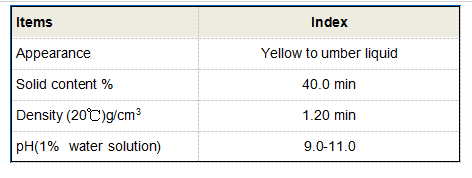scale and corrosion inhibitor for cooling tower
Understanding Scale and Corrosion Inhibitors in Cooling Towers
Cooling towers are critical components in a variety of industrial and HVAC applications, used primarily for heat rejection. They function by transferring waste heat to the atmosphere through the evaporation of water. However, the operation and efficiency of cooling towers are often compromised by the formation of scale and corrosion, leading to significant maintenance costs and reduced operational efficiency. This article explores the causes of scale and corrosion in cooling systems and the role of inhibitors in mitigating these issues.
Scale Formation in Cooling Towers
Scale refers to the buildup of mineral deposits, often comprising calcium carbonate, calcium sulfate, or magnesium salts, on the surfaces of cooling tower components, such as heat exchangers, pipes, and cooling media. This accumulation generally results from the evaporation of water during the cooling process, which leaves behind dissolved minerals that crystallize and adhere to surfaces. Scale formation can significantly reduce heat transfer efficiency, resulting in higher energy consumption and operational costs. In severe cases, the blockage caused by scale can disrupt water flow and lead to equipment failure.
Factors affecting scale formation include water chemistry, temperature, and the concentration of dissolved solids. Hard water, which contains high levels of calcium and magnesium ions, is particularly prone to scaling. Therefore, managing water quality is essential to minimize scale formation in cooling towers.
Corrosion in Cooling Towers
Corrosion is another major issue that affects the longevity and efficiency of cooling towers. It involves the deterioration of metal surfaces, typically caused by chemical reactions between the metal, the water, and the surrounding environment. Common types of corrosion in cooling systems include pitting, galvanic corrosion, and generalized corrosion.
Factors contributing to corrosion include low pH levels (acidic conditions), high oxygen content in water, and the presence of aggressive ions such as chlorides
. In cooling towers, corrosion can lead to leaks, structural failures, and expensive repairs, as well as increased downtime for maintenance.scale and corrosion inhibitor for cooling tower

The Role of Corrosion and Scale Inhibitors
To combat the detrimental effects of scale and corrosion, water treatment programs often include the use of inhibitors. These chemical additives are designed to either prevent or reduce the rate of scale formation and corrosion, ensuring the efficient operation of cooling towers.
Scale Inhibitors These are chemicals that interfere with the crystallization process of scaling minerals, preventing them from forming solid deposits. Common scale inhibitors include phosphonates, polyacrylic acids, and organophosphates. They work by
1. Dispersing particles By keeping the particles in suspension, they prevent the precipitation of scale-forming minerals. 2. Modulating crystal growth They can alter the structure of scale-forming crystals, making them less adhesive to surfaces. 3. Promoting corrosion resistance Some scale inhibitors also provide a degree of corrosion protection.
Corrosion Inhibitors These chemicals protect metal surfaces from corrosive attack. They can work through several mechanisms
1. Film formation Corrosion inhibitors may form a protective layer on the metal surface, reducing the reaction with corrosive agents. 2. Cathodic protection Certain inhibitors can alter the electrochemical reactions, making the metal surface less prone to corrosion. 3. Passivation Some corrosion inhibitors promote the formation of a protective oxide layer, further shielding the metal from aggressive ions.
Conclusion
The effective management of scale and corrosion in cooling towers is essential for maintaining optimal performance and extending the lifespan of equipment. Utilizing appropriate scale and corrosion inhibitors as part of a comprehensive water treatment strategy helps mitigate these problems, ensuring that cooling systems operate efficiently. This not only reduces maintenance costs but also promotes sustainability by minimizing water usage and energy consumption. As technology and chemistry continue to advance, the development of more effective inhibitors will remain a critical focus for industries reliant on cooling tower systems.
-
The Ultimate Guide to Flocculants: Transforming Water TreatmentNewsNov.01,2024
-
Improve Your Water Treatment Solutions with PolyacrylamideNewsNov.01,2024
-
Enhance Your Water TreatmentNewsNov.01,2024
-
Empower You to Achieve the Highest Standards of Water QualityNewsNov.01,2024
-
Effective Scale InhibitorsNewsNov.01,2024
-
Discover the Power of Poly Aluminum Chloride in Water TreatmentNewsNov.01,2024





